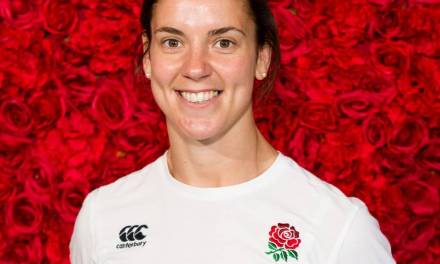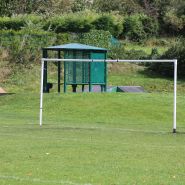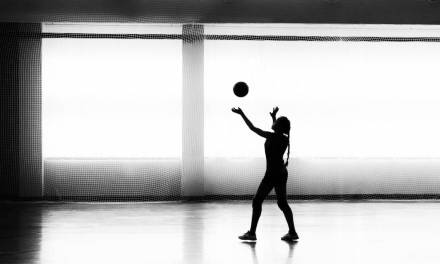Girls need positive role models if they’re to be inspired to take up sport; here we interview Sarah Hunter, captain of the successful England Women’s Rugby team.
First, please tell us a bit about yourself
My name is Sarah Hunter; I am captain of the England Women’s Rugby team. Although I’m from Newcastle-upon-Tyne I play my club rugby for Bristol Ladies. With England, I lifted the Women’s Six Nations trophy in March after winning the Grand Slam for the first time since 2012.
Were you sporty when you were at school?
Yes – I played every sport going at school! I loved sport from such an early age; I saw my older brother try everything first so I joined in with him when I was old enough. We often played football or cricket in the street and I then played on every sports team possible at primary school: football, hockey, netball, rugby, athletics, rounders, you name it.
That then continued into high school, I loved PE and being active. At the age of 15 I had to prioritise where and which sport I was going to concentrate on because education came into it and I was already spending too many nights playing sport. Rugby was the one I loved the most so that’s the one I chose to focus on.
How did you get interested in rugby?
I started playing when I was nine years old at primary school. It was a rugby league format so we had a community coach come in to do a session in PE. I didn’t have an option of whether I did the session or not, but I loved the sport from the moment I picked up a rugby ball.
I haven’t stopped playing ever since and at the age 15 I decided to go for rugby as my number one sport. I’m pretty glad I did now.
Why do you think so few girls take part in physical activity?
I think more girls are starting to take part in physical activity. There are now a lot of role models in women’s sport trying to prove that you can be fit, healthy and active but still be feminine at the same time.
Those boundaries are closing and there are even girls taking part in physical activity like dance and gym-based work instead of traditional sports. It’s all about having a wider offering to girls to show that you can be active.
What do you think are the main benefits for girls getting regular exercise?
It’s the same benefits for everyone, not just girls. We’ve all seen in the news about how positive doing exercise on a regular basis is, not only for your physical wellbeing but also mentally. I think that’s regardless of what gender you are.
What do you think are the barriers to girls and young women entering sport?
There is still a stigma around getting hot and sweaty and that it’s unattractive. Obviously you can look a bit messy after training, but a lot of images on social media are about a perception of how girls should be: pretty, with perfect make-up and hair. People don’t necessarily think you can be like that and sporty at the same time.
What is your top tip for teachers to get girls interested in PE?
Have a range of availability and be flexible. When I did PE in school it was very structured and there wasn’t much of a range of what you could do. If you didn’t like team sports you were fairly limited in your options.
It would be great if PE lessons were more informal and girls could wear whatever clothes they are comfortable in, rather than strict PE kit. You want to make PE lessons as fun and enjoyable as possible for the participants.
What would you say to encourage girls to get involved in rugby?
I’d say just have a go at rugby. In my previous job in rugby development, girls who were taking up the sport at university were afraid of getting hit. However, as soon as they played non-contact versions of the sport like touch or tag rugby they immediately loved it.
So it’s important to not look at rugby as how it might be on the TV, introduce yourself at a rate you feel comfortable. You really will have fun in doing so!
Rebecca has been a writer and editor for almost 20 years. She writes on a huge range of subjects, concentrating on sport, nature, mental health, and crafts.










